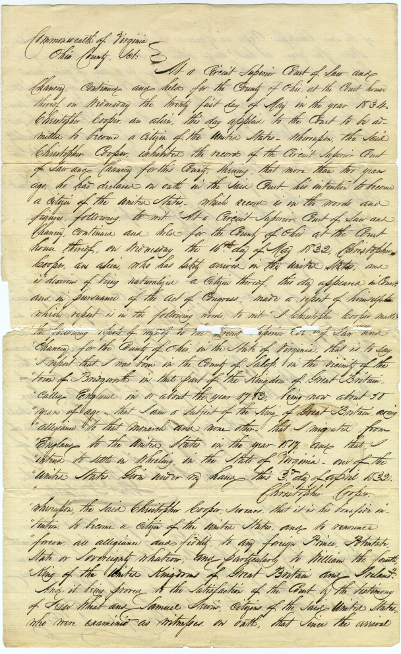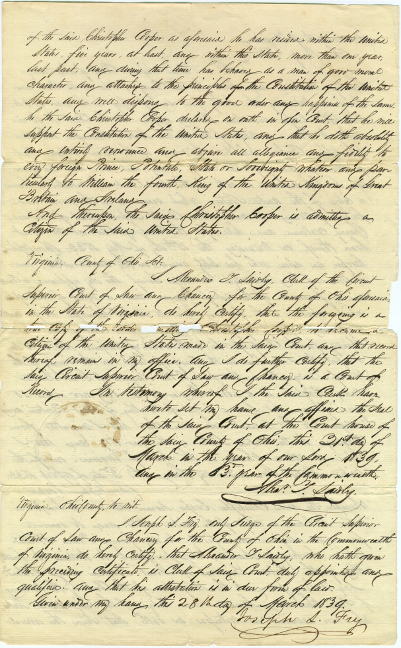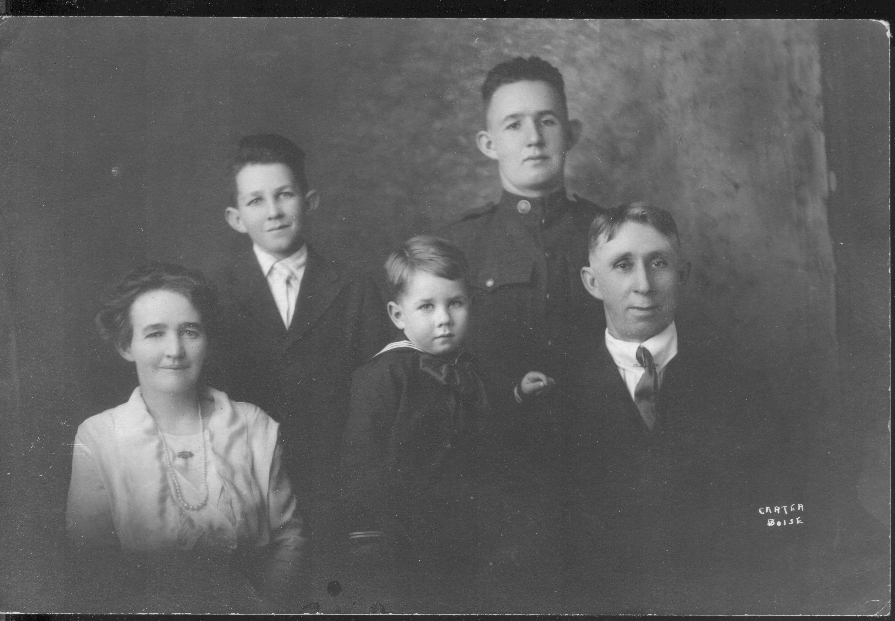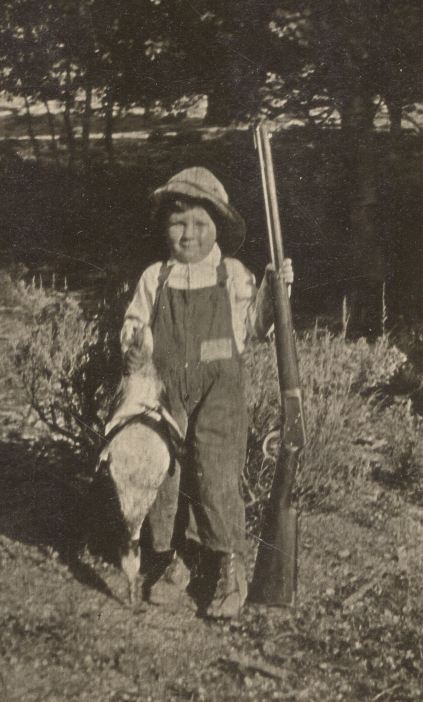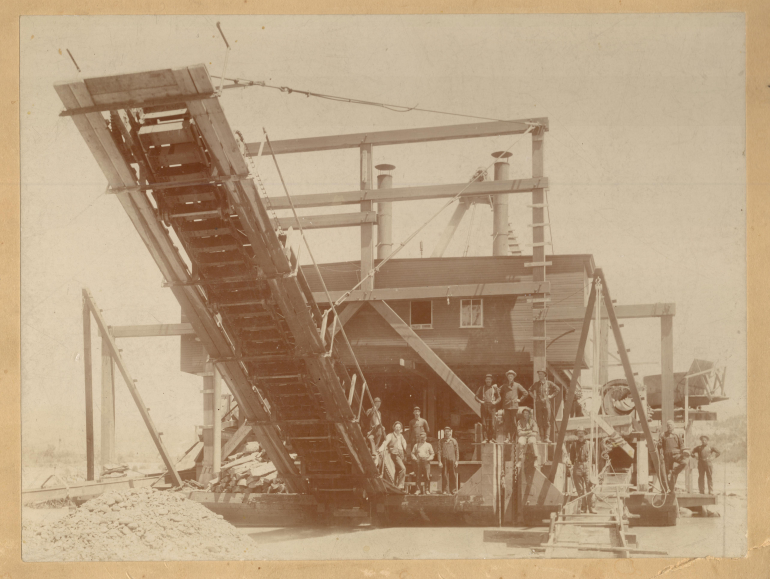From the Idaho World (Idaho's oldest, continuously published newspaper, by the way) from sometime in November 1902:
One of the most attractive weddings that ever took place here was that of Miss Madie Cooper, daughter of Mr. and Mrs. Frank H. Cooper, and Mr. Wm. J. McNeil, of Idaho City.
The ceremony was performed by Probate Judge Hart at the residence of the bride's parents. The bride was escorted into the parlor by her father, followed by Mrs. Cooper and Mr. McNeil.
The bride was beautifully attired in a pearl gray gown, a pretty wreath of orange blossoms in her hair, in her hand a cluster of roses. Miss Essie Cooper, sister of the bride, was bridesmaid and looked charming.
Will Cooper, the bride's oldest brother, filled the bill as best man to perfection. The number of invited guests was large, and they passed an enjoyable afternoon; in fact so much so that were a stranger to enter the room he would think that everybody had just been married.
It is said that the bride received more presents and of greater value than any young lady ever married here, which to enumerate would occupy too much of your valuable space.
The wedding repast was served in the dining room, and surely it was a feast fit for the gods. Late in the afternoon the guests bade the bride and groom “by by," at the same time wishing them a long life of prosperity and happiness.
Mr. and Mrs. McNeil will make their home near Idaho City.
Since the wedding, bachelors who have withstood the charms and fascinations of the fair sex for years are trembling in their boots and feelingly asking themselves, "Who'll be next?"
----
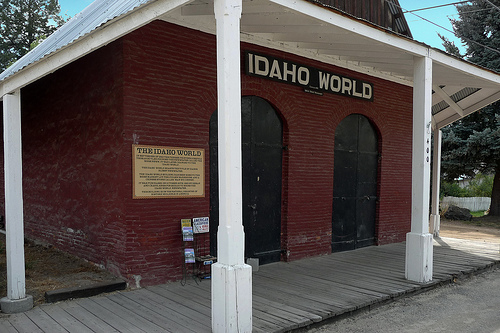
Still in business after 164 years...just not as prosaic as a hundred and ten years ago. Madie (Mary) and Frank McNeil were my great grandparents. Madie's father William was the nephew of the Frank, Henry and William Coopers who have been mentioned in the previous letters.
So you can see that sometimes it's a little tough to keep track of who is whom. There are a bunch of Christophers, Henrys and Williams through the generations and it's painfully easy to get one generation mixed up with the other.
One of the most attractive weddings that ever took place here was that of Miss Madie Cooper, daughter of Mr. and Mrs. Frank H. Cooper, and Mr. Wm. J. McNeil, of Idaho City.
The ceremony was performed by Probate Judge Hart at the residence of the bride's parents. The bride was escorted into the parlor by her father, followed by Mrs. Cooper and Mr. McNeil.
The bride was beautifully attired in a pearl gray gown, a pretty wreath of orange blossoms in her hair, in her hand a cluster of roses. Miss Essie Cooper, sister of the bride, was bridesmaid and looked charming.
Will Cooper, the bride's oldest brother, filled the bill as best man to perfection. The number of invited guests was large, and they passed an enjoyable afternoon; in fact so much so that were a stranger to enter the room he would think that everybody had just been married.
It is said that the bride received more presents and of greater value than any young lady ever married here, which to enumerate would occupy too much of your valuable space.
The wedding repast was served in the dining room, and surely it was a feast fit for the gods. Late in the afternoon the guests bade the bride and groom “by by," at the same time wishing them a long life of prosperity and happiness.
Mr. and Mrs. McNeil will make their home near Idaho City.
Since the wedding, bachelors who have withstood the charms and fascinations of the fair sex for years are trembling in their boots and feelingly asking themselves, "Who'll be next?"
----

Still in business after 164 years...just not as prosaic as a hundred and ten years ago. Madie (Mary) and Frank McNeil were my great grandparents. Madie's father William was the nephew of the Frank, Henry and William Coopers who have been mentioned in the previous letters.
So you can see that sometimes it's a little tough to keep track of who is whom. There are a bunch of Christophers, Henrys and Williams through the generations and it's painfully easy to get one generation mixed up with the other.

